
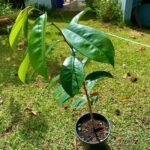
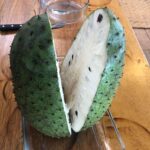
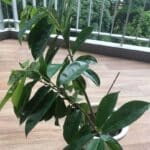
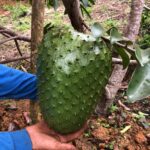

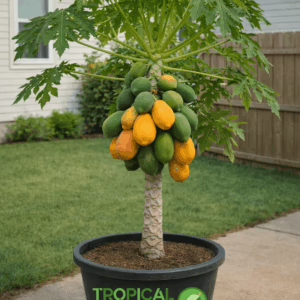
SOURSOP (ANNONA MURICATA) Tropical fruit tree 12″-24″
$70.00 Original price was: $70.00.$44.99Current price is: $44.99.
Soursop: The Tropical Delight with Health Benefits
Soursop, scientifically known as Annona muricata, is a captivating and exotic fruit native to the tropical regions of the Americas. Also referred to as Graviola or Guanabana, soursop is celebrated not only for its unique flavor but also for its potential health benefits. In this guide, we’ll explore the characteristics of soursop, its taste, uses, cultivation, and an interesting fact to deepen your appreciation of this remarkable fruit
Taste and Characteristics
Soursop is known for its distinctive taste and captivating features:
1. **Flavor**: The flavor of soursop is a delightful blend of tropical sweetness with subtle notes of citrus and pineapple. Its taste is often described as a cross between strawberries and pineapple, with a creamy, custard-like texture.
2. **Texture**: The flesh of soursop is soft, fibrous, and juicy. It is often used to make smoothies, juices, and desserts due to its creamy consistency.
3. **Size**: Soursop fruits can range in size from small, weighing around 2 pounds (0.9 kilograms), to larger fruits that can reach up to 15 pounds (6.8 kilograms).
4. **Appearance**: The exterior of soursop is green and spiky, resembling a thorny, heart-shaped or oval fruit. The inner flesh is white and contains dark seeds.
**Culinary and Health Uses**
Soursop is a versatile fruit with numerous culinary and potential health benefits:
1. **Culinary Uses**: Soursop is enjoyed fresh, often scooped out with a spoon, or used in smoothies, fruit salads, ice creams, and sorbets. It is also a key ingredient in traditional desserts and beverages in many tropical regions.
2. **Health Benefits**: Soursop is believed to offer several health benefits due to its rich nutritional profile. It is a good source of vitamin C, B vitamins, potassium, and dietary fiber. Some studies suggest that soursop may have antioxidant properties and potential health benefits, although more research is needed in this area.
3. **Traditional Medicine**: In various cultures, soursop has been used in traditional medicine for its potential medicinal properties, such as anti-inflammatory and analgesic effects.
**Cultivating Soursop Trees**
If you’re interested in growing your own soursop tree, here are some essential guidelines:
1. **Climate**: Soursop thrives in tropical and subtropical climates with warm temperatures. It cannot tolerate frost and prefers temperatures between 68°F and 90°F (20°C to 32°C).
2. **Soil**: Plant soursop in well-draining soil with good fertility. A slightly acidic to neutral pH level is ideal for optimal growth.
3. **Spacing**: Allow enough space between soursop trees (15 to 20 feet apart) to accommodate their mature size and canopy.
4. **Watering**: Soursop trees require regular watering, especially during dry spells. Keep the soil consistently moist but not waterlogged.
5. **Pruning**: Prune soursop trees as needed to maintain a balanced shape, improve air circulation, and remove dead or crowded branches.
6. **Fertilization**: Feed your soursop tree with a balanced, slow-release fertilizer formulated for fruit trees. Apply fertilizer in the spring and early summer to support healthy growth and fruit production.
7. **Pest and Disease Management**: Monitor your soursop tree for common pests like aphids and mites. Additionally, keep an eye out for fungal diseases and manage them with appropriate fungicides.
**Interesting Fact about Soursop**
In various cultures where soursop is grown, the fruit is believed to possess not only nutritional and potential health benefits but also certain traditional and cultural significance. In some regions, soursop leaves, in addition to the fruit, are used for various purposes, including making herbal teas and infusions.
In certain South American and Caribbean cultures, soursop leaves are also used as natural insect repellents. People often hang these leaves in their homes to deter insects and mosquitoes, thanks to the leaves’ natural compounds.
In conclusion, soursop is a tropical treasure celebrated for its unique flavor, versatility in culinary creations, and potential health benefits. Whether you enjoy it fresh, in beverages, or as a component of traditional remedies, soursop is a fruit that offers a taste of the tropics and a potential dose of wellness. If you have the right climate and conditions, you can even cultivate your own soursop tree, bringing this exotic delight to your own garden.
| Weight | 10 oz |
|---|---|
| Dimensions | 22 × 4 × 4 in |
| Planting Bag + Soil |
Planting bag + Soil ,I have soil and container |

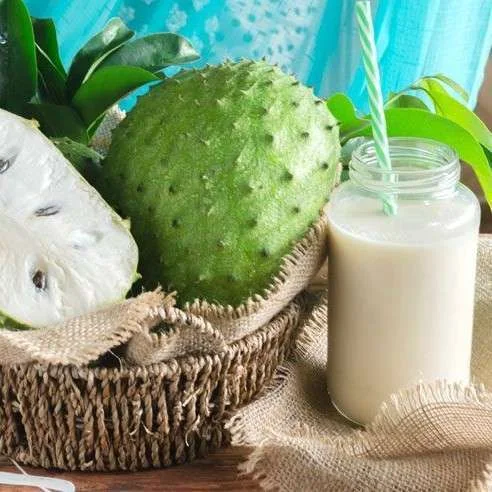

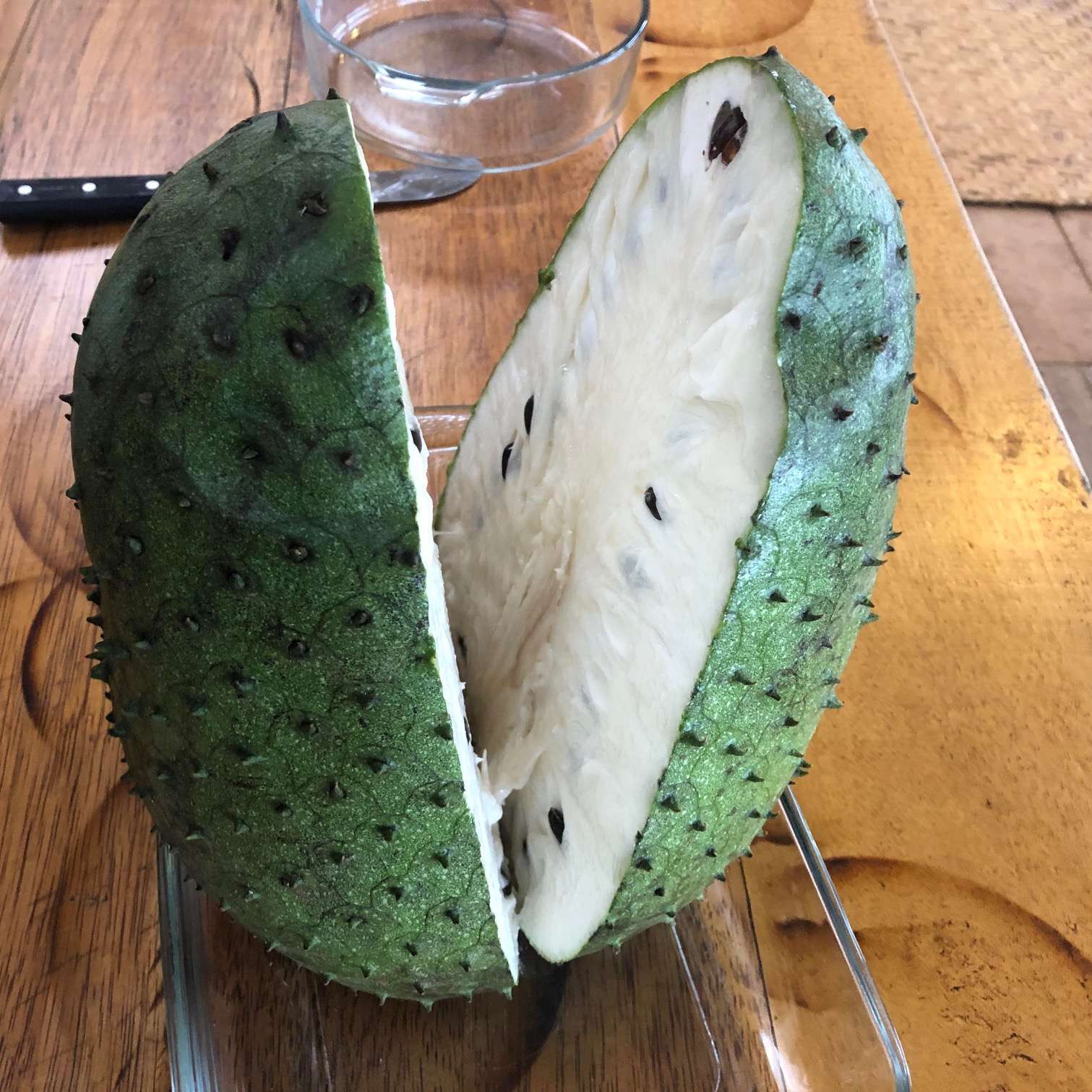
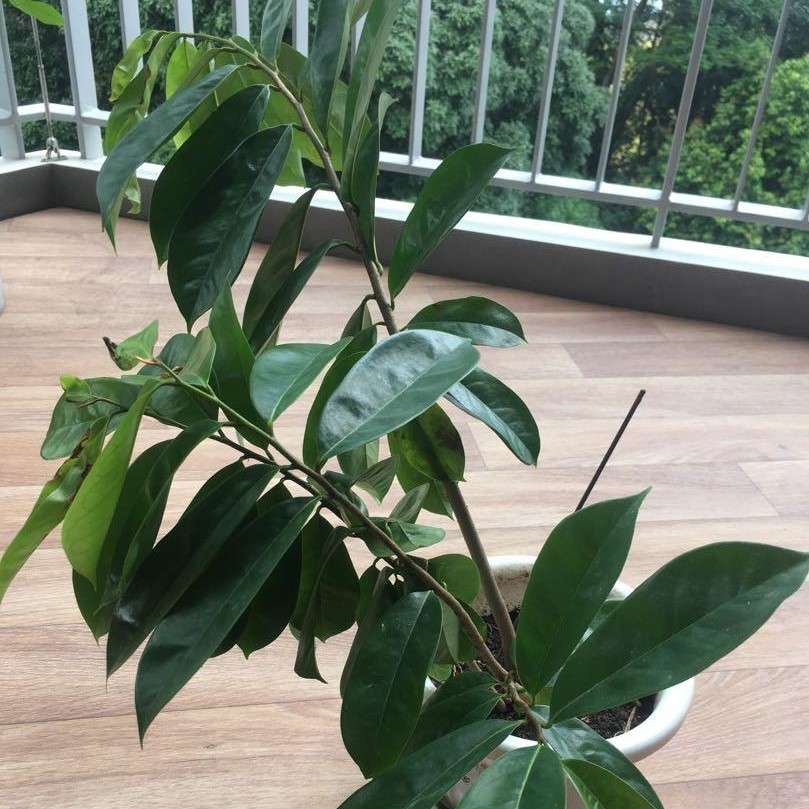
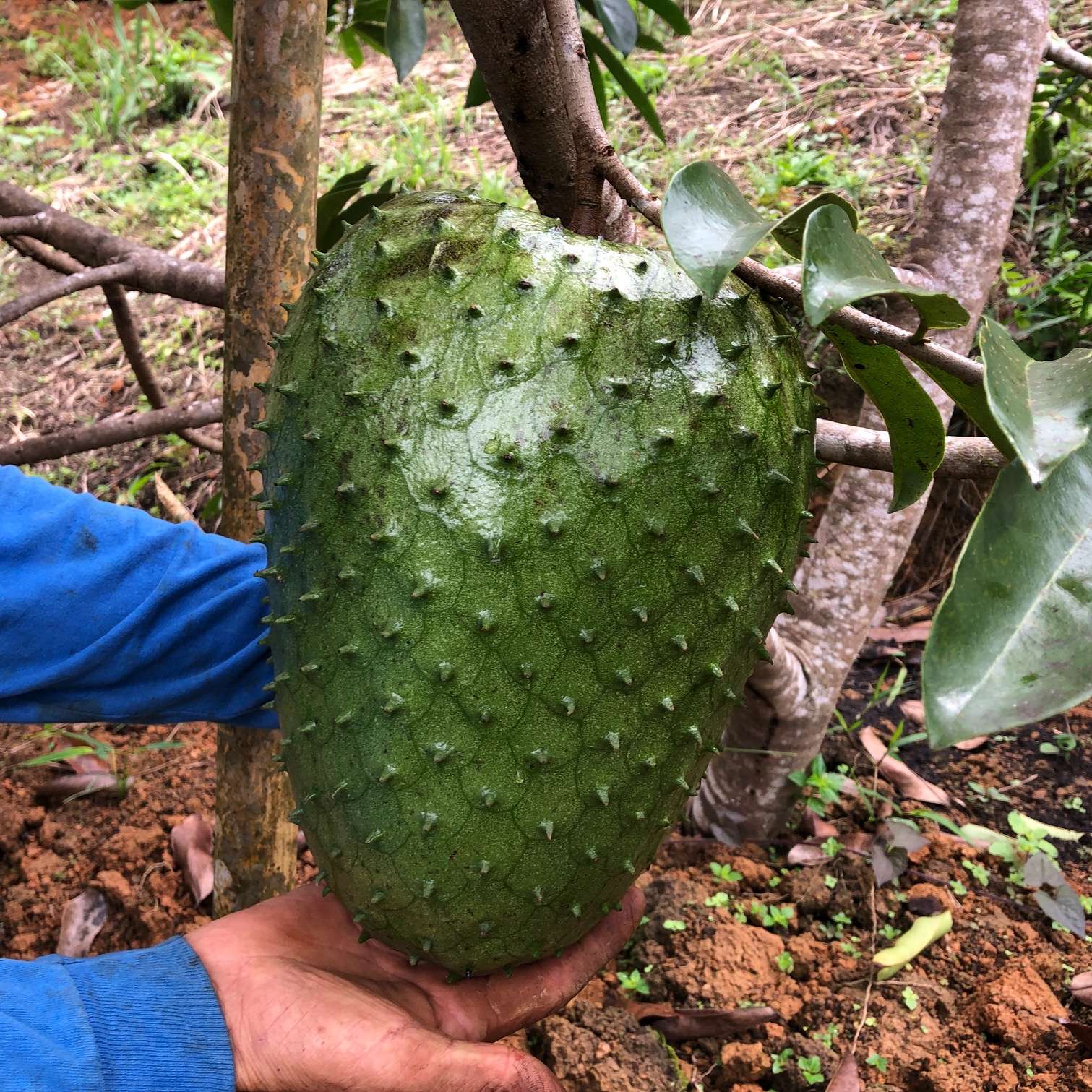
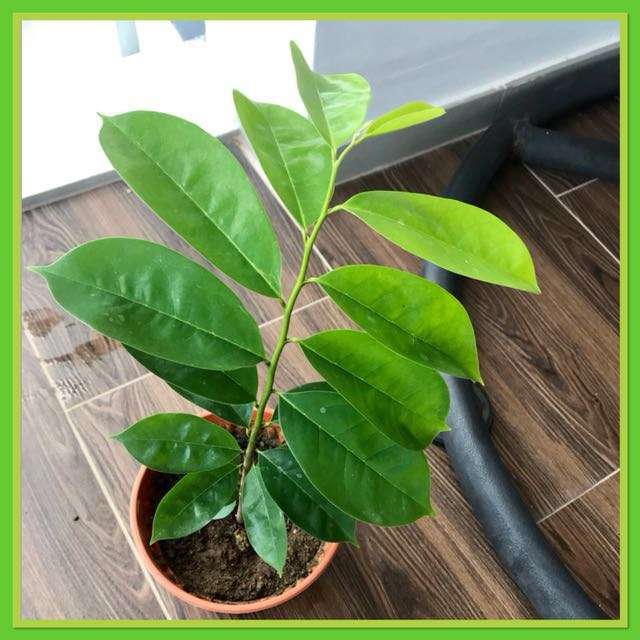



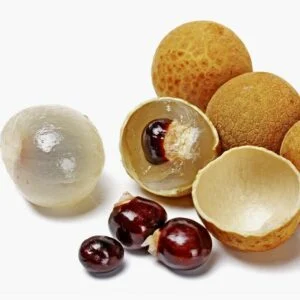
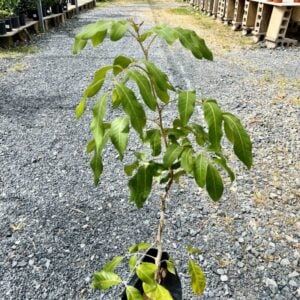
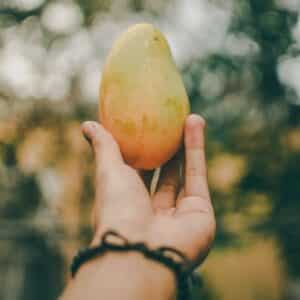





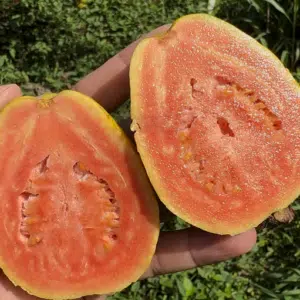
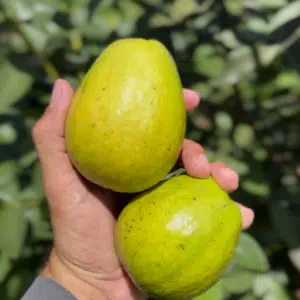




Reviews
There are no reviews yet.